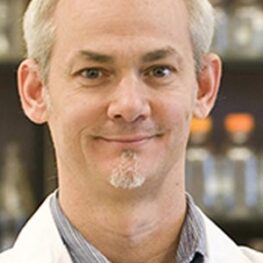Researchers at using genetically engineered kidney organoids from human tissue have solved a long-standing mystery about how the rare condition tuberous sclerosis complex gives rise to benign tumors in organs.

Photo: Bill Stanford, senior scientist at The Ottawa Hospital and professor at the University of Ottawa
TSC is caused by mutations in the TSC1 or TSC2 gene. For most patients, these mutations arise spontaneously during development or early life rather than being inherited from their parents. While lab researchers often use animals to study human diseases, there was no animal model that fully captured TSC’s impact on the kidneys.
Kidney disease is the leading cause of death in patients with TSC. Around 60 to 80 percent of patients develop tumors in their kidneys, often reducing kidney function and sometimes leading to catastrophic bleeding.
TSC tumors in the kidney have puzzled experts because they are extraordinarily diverse in size, cellular makeup and gene expression, even within the same patient. What causes this diversity was unknown, and it makes treatment challenging.
Researchers at The Ottawa Hospital and the University of Ottawa, in a paper published in Cell Reports, describe how they grew 3D kidney tissue in the lab from human stem cells that were genetically engineered to have a TSC1 or TSC2 mutation. Known as organoids, these miniature, simplified versions of kidneys had a genetic profile similar to TSC tumors found in patents. The researchers then took single cells from these kidney organoids and injected them into the kidneys of mice, where they grew into human TSC tumors.
Using these organoids, the researchers revealed that cells called Schwann Cell Precursors are where TSC tumors start in the kidney. They also found this single mutation affects the development of many different kinds of cells, which explains the variation in kidney tumors even within the same person.
“The cells at the origin of tuberous sclerosis tumors have been a mystery for decades,” said senior author Bill Stanford, senior scientist at The Ottawa Hospital and professor at the University of Ottawa. “Our results can help find possible treatment targets for this challenging disease.”
Using these organoids, the researchers revealed that cells called Schwann Cell Precursors are where TSC tumors start in the kidney. They also found this single mutation affects the development of many different kinds of cells, which explains the variation in kidney tumors even within the same person.
The researchers said that the organoids not only can help us to better understand this disease, but they can also be used to test new therapies.
Author: Rare Daily Staff

Stay Connected
Sign up for updates straight to your inbox.
